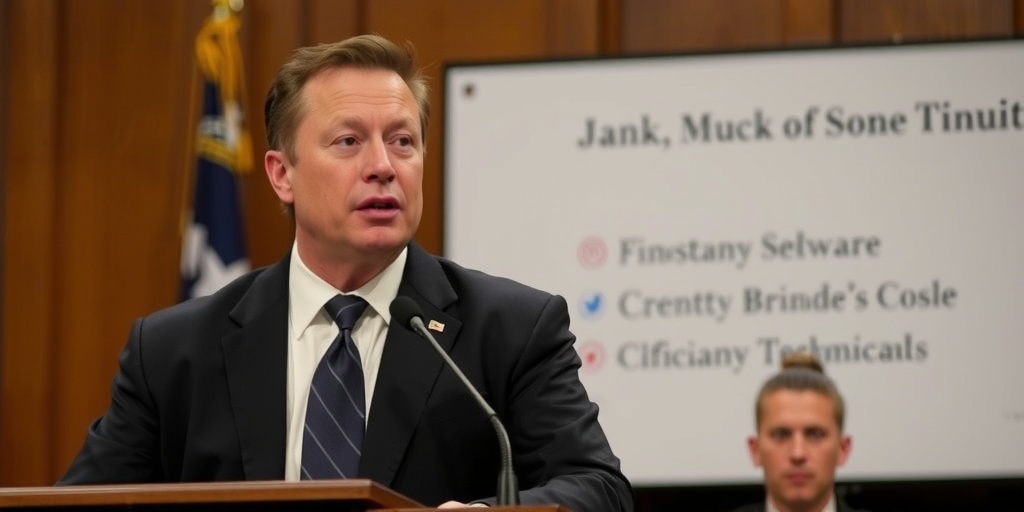Now Reading: Federal Appeals Court Dismisses Florida Gender Identity Case in Schools
-
01
Federal Appeals Court Dismisses Florida Gender Identity Case in Schools
Federal Appeals Court Dismisses Florida Gender Identity Case in Schools

A federal appeals court recently dismissed a lawsuit brought by a Florida couple against the Leon County School District, focusing on the parents’ exclusion from discussions regarding their child’s gender identity. This ruling adds complexity to an ongoing national debate about the rights of parents versus those of minors in the context of gender identity and medical care.
The case centers around January Littlejohn and her husband, who allege that their rights as parents were overlooked when the school officials took steps to support their child, who expressed a desire to transition and use they/them pronouns. The couple is affiliated with a group advocating for parental rights and opposes gender-transition care for minors. Their case highlights a significant national divide, as various states grapple with legislation that restricts gender-affirming care and educational discussions surrounding gender identity, while the judiciary remains conflicted over whether such laws could infringe on equal protection rights under the Constitution.
During a recent speech to Congress, former President Donald Trump acknowledged Ms. Littlejohn as a prominent advocate against what he described as “toxic ideologies” infiltrating schools. He praised her activism and highlighted the administration’s efforts to safeguard children from what he claims is an abusive situation regarding gender identity discussions.
However, the 11th Circuit Court’s ruling, delivered by a panel of three judges, upheld a lower court’s decision to dismiss the lawsuit. The majority opinion, authored by Judge Robin S. Rosenbaum, stated that although the Littlejohns may find the school officials’ actions misguided, the mere fact that they acted contrary to the couple’s wishes does not amount to a violation of constitutional rights. Judge Rosenbaum emphasized that the school officials were trying to assist the child rather than acting with malicious intent.
The Littlejohns’ lawyer expressed disappointment with the ruling, asserting it undermines parental rights and paves the way for schools to operate without transparency regarding their children’s welfare. “This decision reinforces a framework that can erode fundamental rights upheld by the Supreme Court for over a century,” said Vernadette Broyles, the president of the Child & Parental Rights Campaign.
The case gained further notoriety after the Littlejohns learned about their child’s identity change from the school. Their child had opted to utilize different pronouns and a new name as part of their transition before the 2020-21 school year, but the family had only consented to a nickname and had not agreed to the use of alternative pronouns, which the school recognized. Prior guidance from the school district cautioned against “outing” students to parents without their consent due to potential harm the children could face.
Communication between the parents and the school was limited, as the administration claimed there was no legal obligation to involve the Littlejohns in the child’s support plan discussions. This exclusion raised significant concerns for the couple about their role and rights as parents in guiding their child’s development.
U.S. District Court Chief Judge Mark E. Walker had previously dismissed the case, a ruling that was affirmed by the 11th Circuit. The decision pointed out that the school officials did not coerce the child to adopt a particular identity, illustrating that their intentions were aimed at supporting the child’s well-being.
In a detailed ruling that spans 169 pages, the court exhibited internal divisions. While Judge Newsom agreed to uphold the dismissal, he criticized the actions of the school district as “shameful,” highlighting a tension between personal beliefs and constitutional law. He stated that while he might support legislative changes to ensure parental involvement, judges must adhere to legal interpretations rather than personal opinions.
On the other hand, Senior Judge Gerald Bard Tjoflat dissented, arguing that the ruling undermines fundamental rights and the principles of government separation of powers. He voiced concerns that the decision could set a troubling precedent impacting parental rights across the country.
The ongoing legal battles surrounding parental rights and gender identity continue to shape discussions on education and health care for minors. As various state laws emerge and federal courts navigate this contentious terrain, the Littlejohn case exemplifies the balancing act between protecting children’s rights to self-identify and upholding the rights of parents to guide their children’s upbringing in a complex societal landscape.
Stay Informed With the Latest & Most Important News
Previous Post
Next Post
-
 01New technology breakthrough has everyone talking right now
01New technology breakthrough has everyone talking right now -
 02Unbelievable life hack everyone needs to try today
02Unbelievable life hack everyone needs to try today -
 03Fascinating discovery found buried deep beneath the ocean
03Fascinating discovery found buried deep beneath the ocean -
 04Man invents genius device that solves everyday problems
04Man invents genius device that solves everyday problems -
 05Shocking discovery that changes what we know forever
05Shocking discovery that changes what we know forever -
 06Internet goes wild over celebrity’s unexpected fashion choice
06Internet goes wild over celebrity’s unexpected fashion choice -
 07Rare animal sighting stuns scientists and wildlife lovers
07Rare animal sighting stuns scientists and wildlife lovers




















